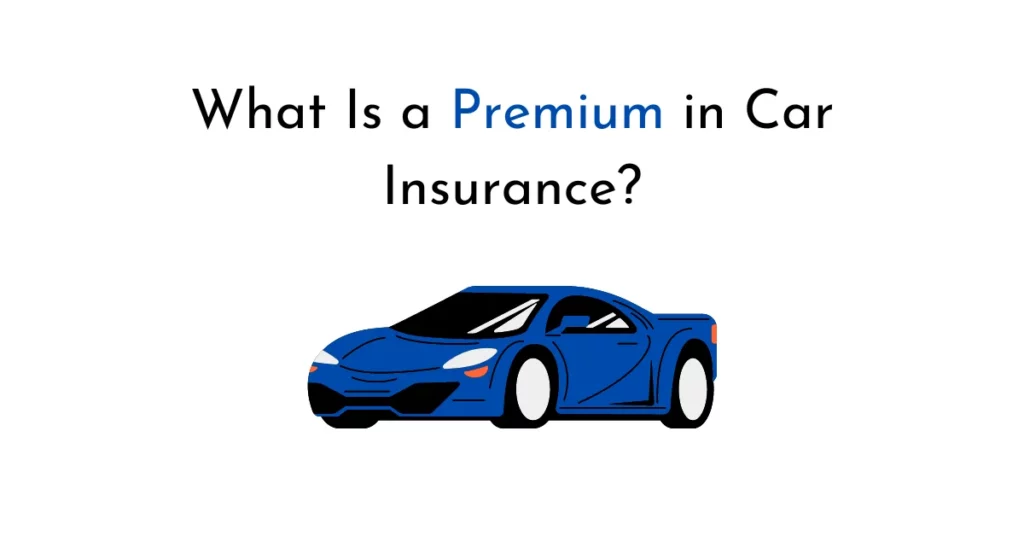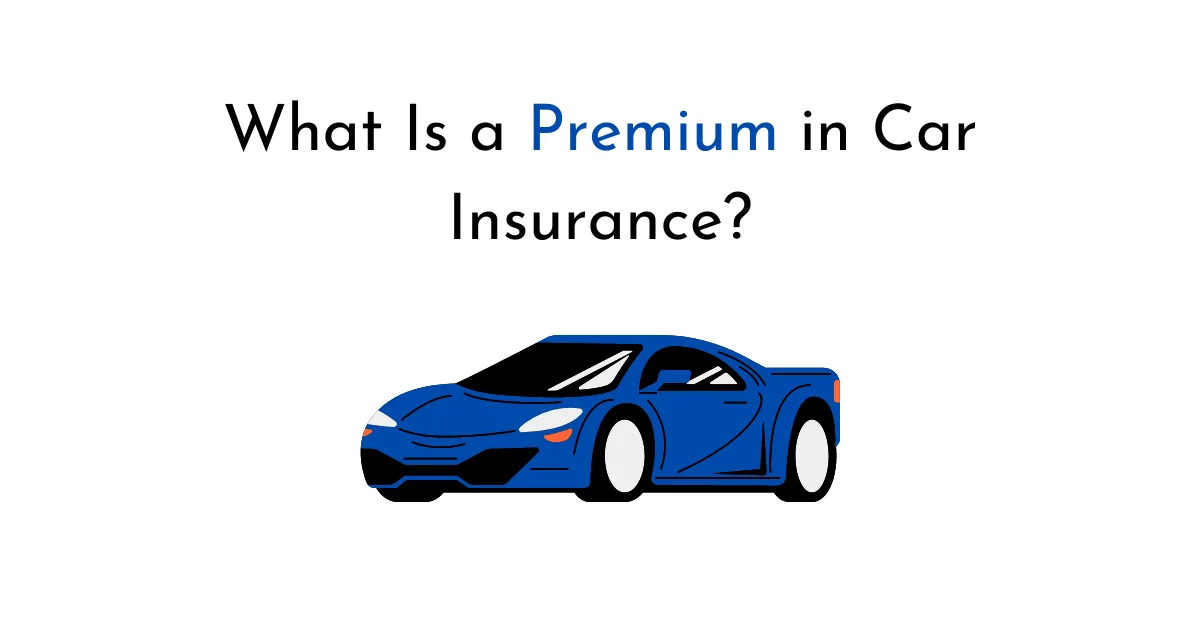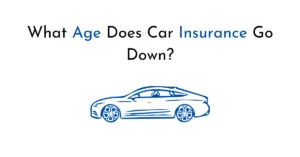Car insurance is a crucial aspect of vehicle ownership, providing financial protection in the event of accidents, theft, or other incidents. When shopping for car insurance, you may come across the term “premium.”
In this comprehensive guide, we’ll explain what a premium is in car insurance, how it works, and its significance in determining the cost of your coverage.

What Is a Premium in Car Insurance?
In car insurance, a premium refers to the amount of money you pay to an insurance company in exchange for coverage. It is the cost of your insurance policy and is typically paid on a regular basis, such as monthly, quarterly, or annually.
The premium amount can vary based on several factors, including your driving history, the type of coverage you select, the make and model of your vehicle, and your location.
How Does a Premium Work?
Car insurance premiums work by pooling the funds from policyholders to cover the costs of potential claims. Insurance companies assess the risk associated with insuring a particular driver or vehicle and calculate premiums accordingly. The higher the risk, the higher the premium.
Insurance premiums are determined through a complex process known as underwriting. During underwriting, insurance companies evaluate various risk factors to determine the likelihood of a policyholder filing a claim. These factors include:
- Driving History: Your driving record, including any accidents or traffic violations, can impact your premium. Drivers with a history of accidents or violations are considered higher risk and may have higher premiums.
- Age and Gender: Younger drivers and males tend to have higher insurance premiums due to higher accident rates associated with these demographics.
- Vehicle Type: The make, model, and age of your vehicle are taken into consideration. More expensive or high-performance vehicles may attract higher premiums due to increased repair or replacement costs.
- Coverage Options: The level of coverage you choose, such as liability, collision, comprehensive, and additional endorsements, can affect your premium. More extensive coverage typically comes with higher premiums.
- Location: Where you live and park your vehicle can impact your premium. Areas with higher population densities, higher rates of accidents or theft, or greater exposure to natural disasters may have higher insurance premiums.
- Credit Score: In some jurisdictions, insurance companies consider credit score when determining premiums. A lower credit score may result in higher premiums.
- Deductibles: The deductible is the amount you pay out of pocket before insurance coverage kicks in. Choosing a higher deductible can lower your premium, but it means you’ll have to pay more in the event of a claim.
Once the premium amount is determined, you will be required to pay it within the specified payment schedule. Failure to make timely payments may result in a lapse in coverage.
What Does Total Premium Mean?
The total premium refers to the overall cost of your car insurance policy for a specific period. It includes all components of your coverage, such as liability, collision, comprehensive, and any additional endorsements.
The total premium amount is calculated based on the factors mentioned earlier and is typically provided to you when you receive your insurance policy documents.
The Difference Between Insurance Policy and Premium
While the terms “insurance policy” and “premium” are related, they refer to different aspects of car insurance.
An insurance policy is a contract between you and the insurance company that outlines the terms, conditions, and coverage details. It specifies what is covered, what is excluded, and the limits of the insurance coverage.
On the other hand, a premium is the amount you pay to obtain and maintain that insurance policy. The premium is the cost associated with the coverage provided by the insurance company. It is the financial consideration for the transfer of risk the insurer to the insured.
Does Premium Mean More Expensive?
The term “premium” in car insurance does not necessarily mean that it is more expensive. The premium amount is determined based on various factors that assess the level of risk associated with insuring a particular driver and vehicle. While higher-risk individuals may have higher premiums, it is possible to find affordable car insurance premiums by considering the following:
- Comparison Shopping: Different insurance companies offer varying premium rates for the same coverage. By shopping around and comparing quotes from multiple insurers, you can find a policy with a competitive premium.
- Discounts and Bundling: Insurance companies often provide discounts that can help reduce your premium. Examples include safe driver discounts, multi-vehicle discounts, and bundling multiple policies such as home and auto insurance.
- Safe Driving and Accident Prevention: Maintaining a clean driving record and avoiding accidents or traffic violations can help keep your premium lower. Insurance companies may reward safe drivers with lower premiums.
- Vehicle Choice: The type of vehicle you choose can impact your premium. Older or less expensive cars generally have lower premiums compared to newer or high-performance vehicles.
- Policy Customization: Adjusting your coverage options, deductibles, and limits can help tailor your premium to fit your budget. However, it’s important to ensure that you have adequate coverage for your needs.
Key Takeaway
In car insurance, a premium is the amount of money you pay to an insurance company for coverage. It is determined based on factors such as driving history, vehicle type, coverage options, and location.
Premiums can vary among insurers, and it is important to shop around, maintain a clean driving record, and consider discounts to find an affordable premium.
Understanding the components of car insurance premiums helps you make informed decisions and find suitable coverage for your needs and budget.
FAQs
Q: What does it mean to have a premium in insurance?
A: In insurance, a premium refers to the cost you pay for coverage. It is the amount of money you pay to an insurance company to obtain and maintain an insurance policy.
Q: What is a premium and how does it work?
A: A premium is the cost of an insurance policy. It is determined based on various factors such as driving history, vehicle type, coverage options, and location. Premiums are paid on a regular basis and contribute to the pool of funds used to cover potential claims.
Q: What does total premium mean?
A: The total premium represents the overall cost of your car insurance policy for a specific period. It includes all components of coverage, such as liability, collision, comprehensive, and additional endorsements.
Q: What is the difference between insurance policy and premium?
A: An insurance policy is a contract that outlines the terms, conditions, and coverage details of your insurance. The premium, on the other hand, is the cost you pay to obtain and maintain that policy.
Q: Does premium mean more expensive?
A: The premium amount in car insurance is determined based on various factors. While higher-risk individuals may have higher premiums, it is possible to find affordable premiums by shopping around, maintaining a clean driving record, and considering discounts and policy customization.



